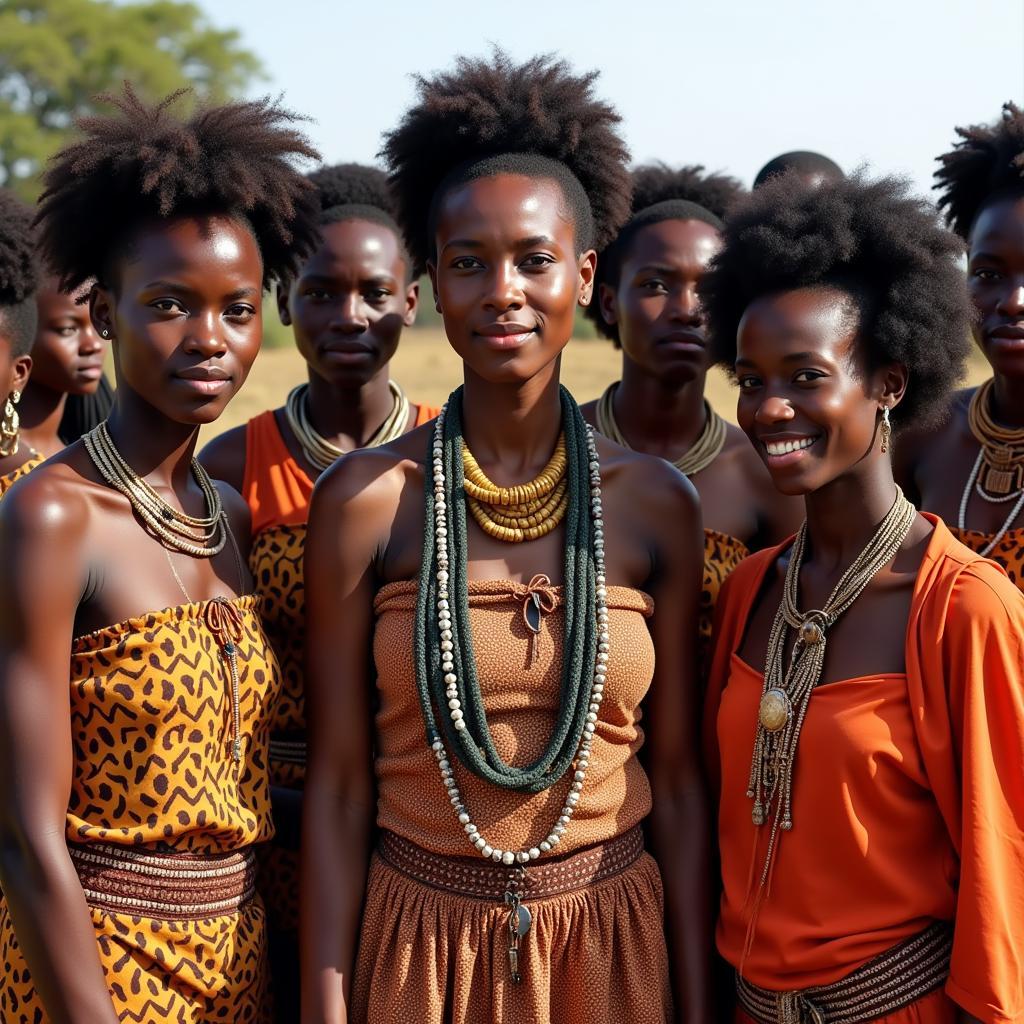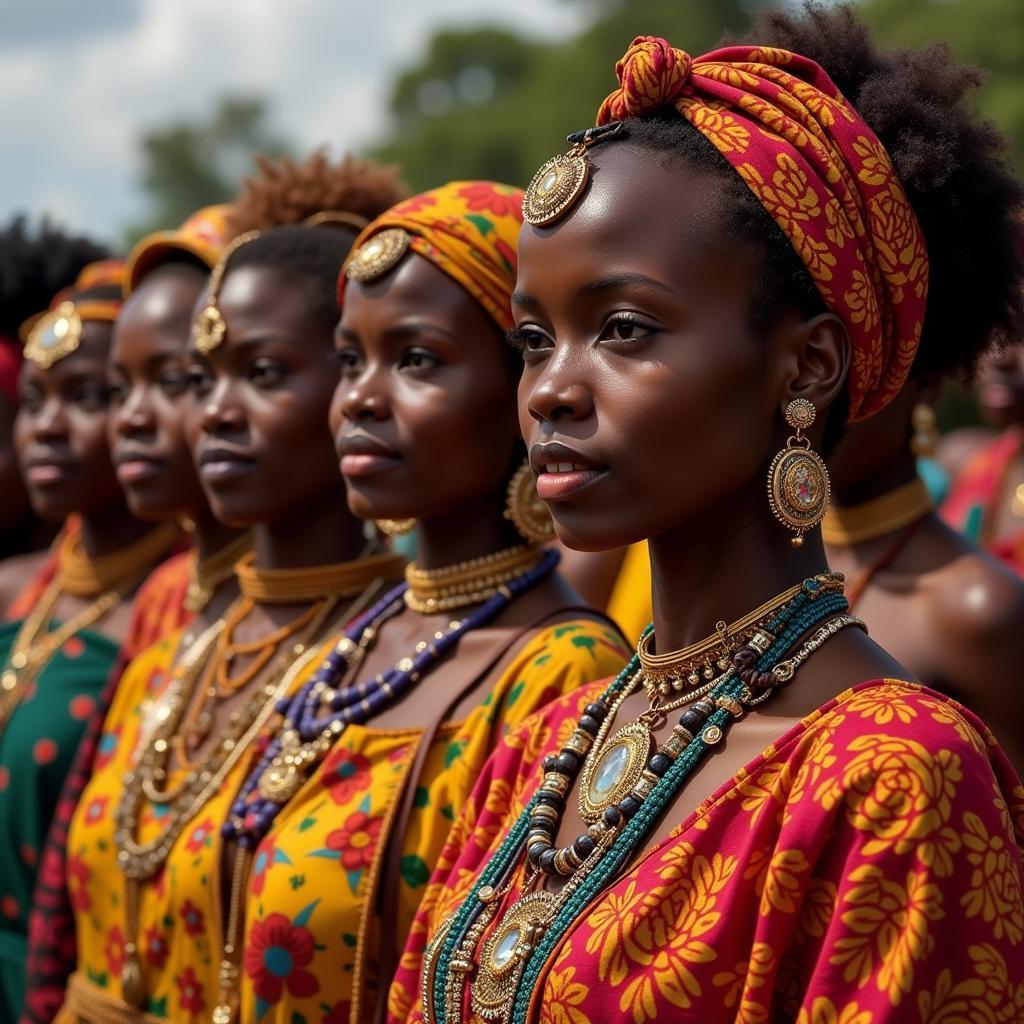The African Country with the Most Official Languages
South Africa is widely recognized as the African country with the most official languages. This fascinating linguistic diversity reflects the country’s rich cultural tapestry and complex history. Let’s explore this unique aspect of South Africa and delve into the significance of its multilingualism.
South Africa’s constitution recognizes 11 official languages, a testament to the nation’s commitment to inclusivity and the preservation of its diverse cultural heritage. These languages represent a broad spectrum of linguistic families, including Bantu, Germanic, and Khoi-San. This multilingualism presents both opportunities and challenges, impacting various aspects of South African Life, from education and governance to everyday communication and cultural expression.
Exploring South Africa’s 11 Official Languages
What are these 11 official languages that make South Africa so unique? The list includes: Afrikaans, English, isiNdebele, isiXhosa, isiZulu, Sesotho sa Leboa, Sesotho, Setswana, siSwati, Tshivenda, and Xitsonga. Each language boasts a rich history and vibrant literary tradition, contributing to the overall cultural landscape of the country. While English is commonly used in government and commerce, efforts are made to promote the use of all official languages.
This diverse linguistic landscape has profoundly shaped South African identity. It has fostered a sense of belonging and cultural pride among various language communities while simultaneously presenting challenges in terms of effective communication and national cohesion. Navigating this complexity requires ongoing dialogue and a commitment to mutual understanding.
The Challenges and Opportunities of Multilingualism
While multilingualism enriches South African culture, it also presents unique challenges. Ensuring equal access to education and government services in all 11 languages requires substantial resources and ongoing effort. Moreover, effective communication across language barriers can be complex, necessitating skilled interpreters and translators.
However, these challenges are outweighed by the numerous opportunities that multilingualism provides. It fosters intercultural dialogue, promotes tolerance and understanding, and creates a dynamic and vibrant cultural environment. South Africa’s multilingualism is a powerful symbol of its commitment to inclusivity and diversity. You can find a list of West African countries here: list of west african countries.
Why Does South Africa Have So Many Official Languages?
The multiplicity of official languages is a direct reflection of South Africa’s complex history. The country’s indigenous languages existed long before European colonization. The arrival of Dutch and British settlers introduced Afrikaans and English, further enriching the linguistic tapestry. The apartheid era saw attempts to suppress indigenous languages, but the post-apartheid constitution enshrined multilingualism as a core value.
“Recognizing multiple official languages was a vital step towards healing the wounds of the past and building a more inclusive and equitable society,” says Dr. Lindiwe Mazibuko, a renowned linguist and cultural expert. “It’s a continuous journey of embracing our diversity.” Another expert, Professor Thando Mgqolozana, adds, “This multilingualism is not just a matter of policy; it’s deeply interwoven with our cultural identity and social fabric.” For more information on African countries, see african country all.
Conclusion
South Africa’s status as the African country with the most official languages is a testament to its rich cultural diversity and commitment to inclusivity. While navigating this multilingual landscape presents challenges, the opportunities for intercultural understanding and vibrant cultural expression are immense. This linguistic diversity is integral to South Africa’s identity and its journey towards a more equitable and united future. Understanding the country’s linguistic landscape offers a deeper appreciation for its complex history and vibrant present. Check out the african country with bengali language. The African continent countries and capitals pdf can provide a valuable overview. You can find information about the african date format here.
FAQ
- What is the most spoken language in South Africa? Zulu
- Is English widely spoken in South Africa? Yes, English is widely used in commerce and government.
- Why are there so many languages in South Africa? It’s a reflection of its diverse history and indigenous cultures.
- Are all 11 languages equally represented? The government strives for equal representation, but challenges remain.
- How does multilingualism affect education in South Africa? It creates both opportunities and challenges in providing education in all official languages.
- What is the role of interpreters in South Africa? They are crucial for facilitating communication across language barriers.
- How does multilingualism contribute to South African culture? It enriches cultural expression and promotes intercultural dialogue.
Need support? Contact us 24/7:
Phone: +255768904061
Email: kaka.mag@gmail.com
Address: Mbarali DC Mawindi, Kangaga, Tanzania.

